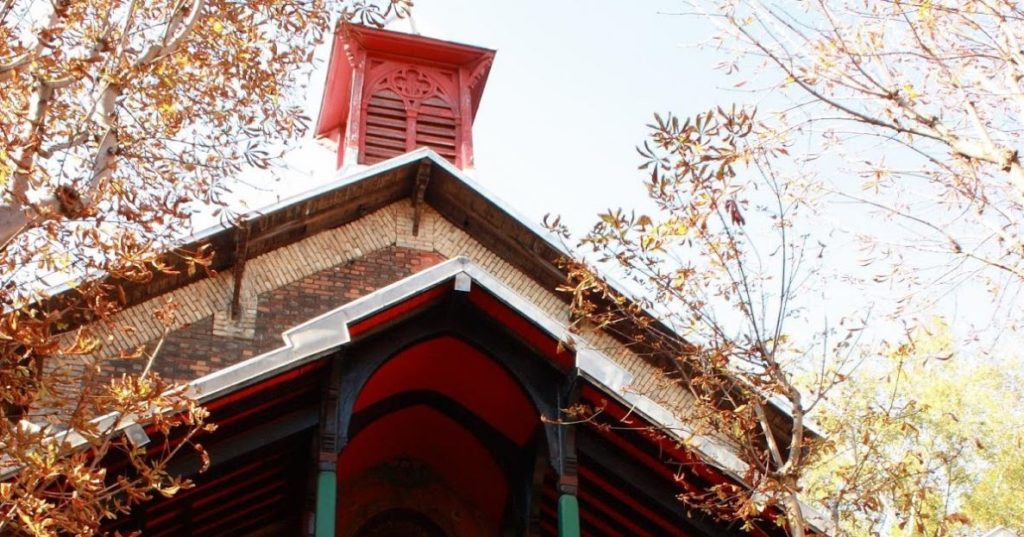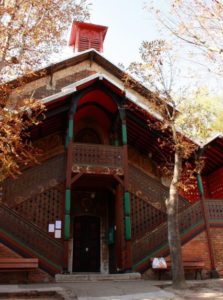
by Tudor Petcu
A Romanian writer, Tudor is a graduate of the Faculty of Philosophy, University of Bucharest, Romania. He has published a number of articles related to philosophy and theology in different cultural and academic journals. His work focuses on the evolution of Orthodox spirituality in Western societies as well and he is going to publish a book of interviews with Westerners converted to Orthodoxy. In this article, he interviews Fr. John Breck.
As a Protestant theological student in the United States I had long wanted to teach in the area of New Testament and hermeneutics. Since to do so required a doctoral degree, I decided to do graduate studies at the University of Heidelberg in Germany, a major center of Protestant biblical scholarship.
 In the summer of 1966, a year after our move to Heidelberg, my wife and I attended a seminar at the Ecumenical Institute near Geneva, then under the direction of the Orthodox theologian Nikos Nissiotis. That seminar, held annually, was created to introduce non-Orthodox theological students to Orthodox theology and liturgy. After ten days of study, the students left for Paris, to spend Holy Week at the St Sergius Institute. The first time I set foot in an Orthodox church was on Holy Wednesday of that year.
In the summer of 1966, a year after our move to Heidelberg, my wife and I attended a seminar at the Ecumenical Institute near Geneva, then under the direction of the Orthodox theologian Nikos Nissiotis. That seminar, held annually, was created to introduce non-Orthodox theological students to Orthodox theology and liturgy. After ten days of study, the students left for Paris, to spend Holy Week at the St Sergius Institute. The first time I set foot in an Orthodox church was on Holy Wednesday of that year.
For many years prior to that I had felt estranged from the Protestant world and its theological perspective(s), wanting to discover an integration of theology and worship that did not exist in the churches I had previously attended. That integration, together with the depth and beauty of Orthodox spirituality, led my wife and me, together with our two sons, on a pilgrimage that concluded with our chrismation in Paris on the feast of the Entry of the Virgin in 1973. This opened the way for me to accept teaching positions in a number of Orthodox theological schools, including St Herman’s Seminary in Alaska, St Sergius Institute in Paris, and St Vladimir’s Seminary in New York, together with brief teaching opportunities in Romania (Cluj, Alba Iulia, Sibiu).
Many converts to Orthodoxy are led by a desire to discover the ancient, “original” Church of the Apostles and their successors. My concern was less historical than theological and liturgical, with particular emphasis on a thorough integration of the two (lex orandi lex est credendi). Aside from the inexhaustible richness of the Eastern Church Fathers, I found a great deal of spiritual depth and insight in the writings of those associated with the so-called “Paris School” of theology, including Frs. Sergius Bulgakov and Georges Florovsky, to whom I have to add Frs Alexander Schmemann and John Meyendorff of St Vladimir’s Seminary. Fr Boris Bobrinsky, in his counsel and his writings on liturgy and the Holy Spirit, offered precious guidance for our movement toward Orthodixy and for my attempts to become familiar with Orthodox thought (he became and remains our spiritual father and a treasured friend).
We have always considered our entry into Orthodoxy to be a gift of God’s boundless grace, an unmerited treasure that has radically transformed our lives. It has given our children, and now our grandchildren, a vision of God’s presence and work in the world that has led them, like their parents, to find unique meaning, value and purpose in the presence of Christ and the Spirit within every aspect of daily life. Orthodoxy was a call, an invitation, to seek first the Kingdom of God and the blessedness of eternal life in communion with the Holy Trinity.
Through the teaching and priestly ministry God has allowed me to assume, I have found, despite my great inadequacies and sinful failings, that Christ and the Spirit, the
“two hands of the Father” (St Irenaeus)
are truly present with us in the midst of a tragic and broken world. And that presence has been to me and to my family a boundless source of hope and of joy.

Re: Call of Orthodoxy and Kingdom of Heaven written by Tudor Petcu. Who was it written about?
This was about Fr. John Breck, as it says in the introductory paragraph.